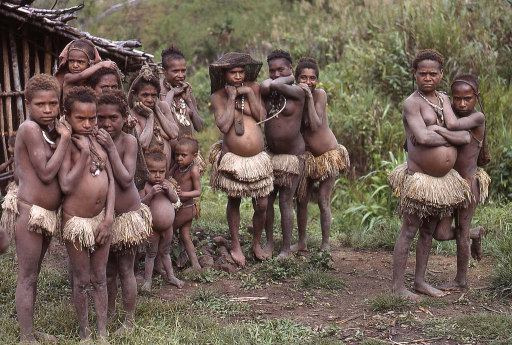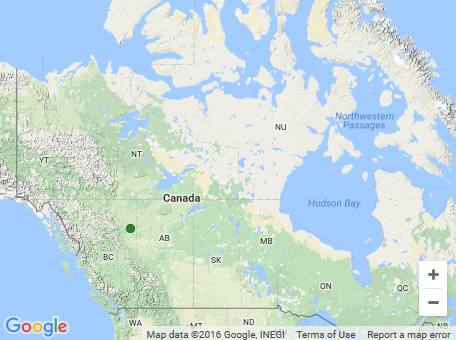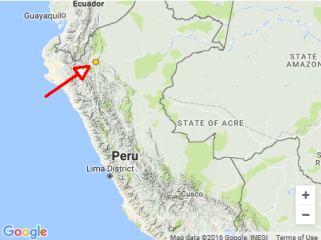Challenge 5 — When words are made up of meaning bits (Science of Linguistics)
Languages around the world organize information in different ways. It is the job of a linguist (language analyst) to puzzle out the meanings of words and parts of words. To do this, they compare several related phrases and find out what is the same and what is different. Some Oksapmin hunters were talking. Try to compare some of their words to discover which part of the word is the action, which part is the person, and which part is the tense.
Challenge 6 — Breaking the language code (Science of Linguistics)
Let’s visit the Dane-zaa people of British Columbia. They represent over 800 speakers and currently have some portions of Scripture available in their language.
Part A Each language not only has unique ways to make up words, but it often arranges the words in a different sequence too. By comparing these sentences in the Dane-zaa language, see if you can figure out what the words mean.
| Dane ihuuge gha?ě. | ‘The man saw a fish.’ |
| Dane nǒdaa gha?ě. | ‘The man saw a lynx.’ |
| Dane ihuuge atsits. | ‘The man is eating a fish.’ |
| Gaah atsits. | ‘She is eating a rabbit.’ |
Part B How do the order of the words in the Dane-zaa sentences differ from English?
Part C Using the 6 words that you have learned from the Dane-zaa language, and accounting for the different word order, translate the following sentence. Drag and drop from the words above.
Translate: “The lynx is eating a rabbit” —
Challenge 7 - Learning to count in a different language (Science of Linguistics)
Still among the Dane-zaa people of British Columbia. Look at the Dane-zaa counting system below. Can you notice any patterns?
|
1 ehlhaahch’ii 2 ǒkech’ii 3 taach’ii 4 jěch’ii 5 lhaahtsech’ii 6 ěhts’e?taach’ii 7 taawedze 8 ěhtse?jěch’ii 9 k’alaak’ech’ii 10 k’enech’ii |
11 k’enech’ii ehlhaahch’ii mataah 12 k’enech’ii ǒkech’ii mataah 19 k’enech’ii k’alaak’ech’ii mataah 30 taach’ii k’ech’ii 42 jěch’ii k’ech’ii ǒkech’ii mataah 90 k’alaak’wenech’ii k’ech’ii 99 k’alaak’wenech’ii k’ech’ii k’alaak’ech’ii mataah 100 k’wenech’ii k’ech’ii 199 k’wenech’ii k’ech’ii k’alaak’wenech’iik’ech’ii k’alaak’ech’ii mataah 900 k’alaak’ech’ii k’wenech’ii k’ech’ii 1000 k’enech’ii k’wenech’ii k’ech’ii |
|
In Genesis 5:25, it says that Methuselah died when he was 969 years old.
|
Challenge 8 — When words don’t match (Application for Bible Translation)
Some words in another language are used differently to the way we use them in English. Here is an example of how some words are used in the Aguaruna language of Peru.
Congratulations on finishing this set of challenges.
If you enjoyed solving language puzzles from around the world, perhaps you should consider getting training to be a linguist or a Bible Translator. They often live with a people group for a time and study the structure of their language. Of the 7000 languages in the world, it has been determined that 1750 languages are still needing Bible translation and other types of language development work. That represents about 250 million people - roughly 9 times the population of Canada. When you are done click on the Home button above and choose another set of challenges.




